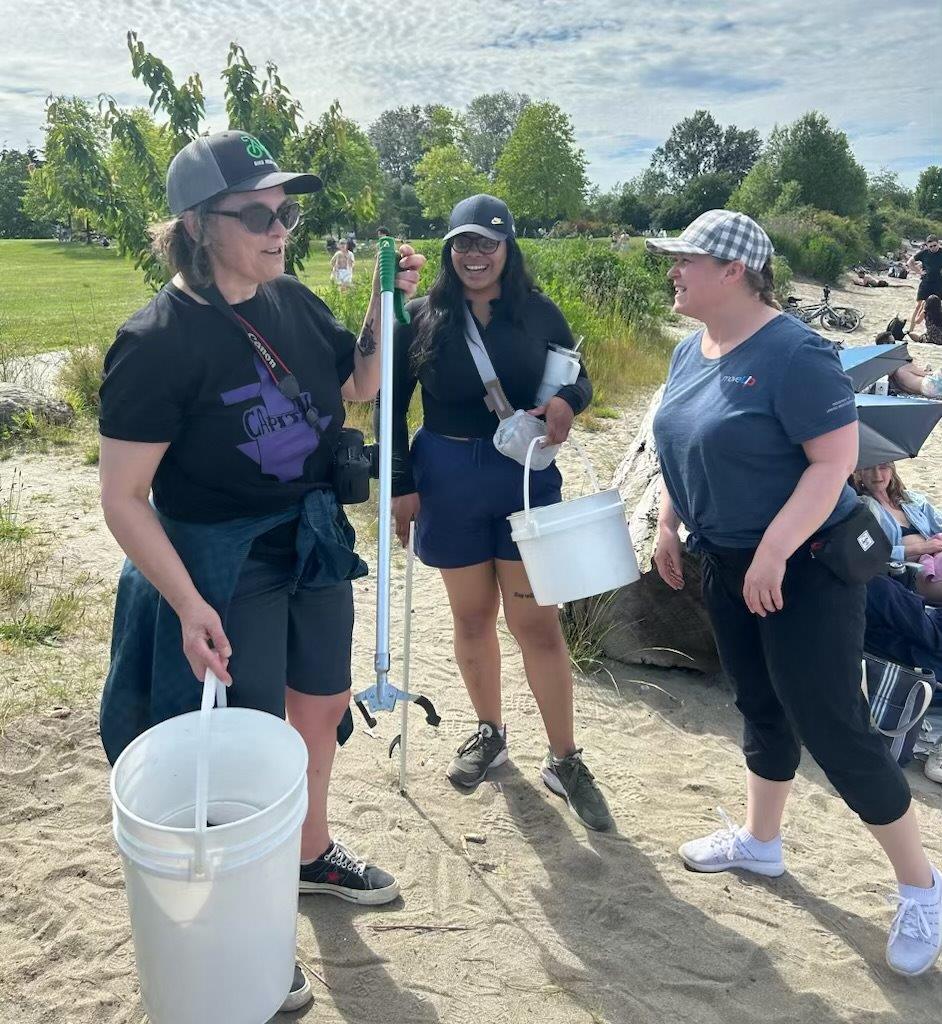
The Environment Committee advocates for the environment and its sustainability to the union, its members, and society in general.
The Environment Committee led the initiative which saw MoveUP become the first carbon neutral union in B.C. This was achieved through the purchase of transparent, ethical offsets from Cool Works.
In preparation for the move to carbon neutrality, MoveUP undertook a series of comprehensive audits, from Greenhouse Gasses to waste and energy use.
- 2009 Greenhouse Gas Audit
- 2008-09 Waste Energy Management Strategy
- 2008 Greenhouse Gas Inventory
- 2007 Greenhouse Gas Audit
MoveUP joined thousands of concerned organizations and individual Canadians united under the KYOTOPlus banner to end the federal political games which threaten the future of Canadians and the planet.
We’ve compiled a list of tips, organizations and websites to help you reduce your footprint and steward our natural environment.
EarthWorks events at Capilano University
EarthWorks is a lecture, film, and field trip series with an environmental stewardship and interdisciplinary flavour, hosted by Capilano University. The initiative is spearheaded by students, staff, and faculty from the university’s Biology, English, Geography, Liberal Studies, Tourism and Outdoor Recreation programs and beyond.
All events are free and open to students, staff, faculty and the public.
Click here for a list of upcoming EarthWorks events.
Articles and Resources by the Environment Committee
Vehicle Fuel Economy and Emissions
CO2 is a greenhouse gas which leading scientists agree is a major factor in global warming. Beyond contributing to climate change, these emissions adversely affect human health, agriculture production and air quality. We can all do our part to reduce our negative impact on others and our planet. By using the most fuel-efficient vehicle that meets our needs and maintaining it when required, we can reduce our CO2 output.
Motor vehicle carbon dioxide (CO2) emissions are directly related to fuel economy. Regulated vehicle emissions carbon monoxide (CO), hydrocarbons (HC) and oxides of nitrogen (NOx) are tightly regulated in modern motor vehicles and only increase when maintenance and repair are required. The following links contain more information on motor vehicle fuel economy and emissions:
Recycling and Reducing Waste
The more we reduce personal consumption, the less waste we create. Since it may not always be possible to avoid purchasing over-packaged items, every effort needs to be taken to ensure they are recycled and don’t end up in a landfill. Fortunately, there is a wide variety of recycling options available for most consumer goods including making use of reusable shopping bags instead of using new plastic or paper bags, and repurposing items to give them new life. The following are links to recycling websites:
Conservation and Reducing our Carbon Footprint
Conservation is one of the most powerful tools we have to protect our environment and combat climate change. It’s simple: when we conserve, we use less resources and pollute less.
We can all make changes to conserve and reduce our individual footprints. Combing several tasks into one tip is one of the most effective ways of reducing your carbon footprint. If you require a vehicle, using the most fuel-efficient, lowest-emitting vehicle will ensure your activities have the minimum impact possible. Using public transit whenever possible will also usually reduce your carbon footprint. You can reduce your food carbon footprint by using the principles involved with the 100-mile challenge.
Here are some links to help you find ways to reduce your carbon footprint:
100-Mile Diet:
Mass Transit:
Natural Environment
We must do everything possible to protect our natural environment. The natural environment encompasses all living and non-living things occurring naturally on Earth. People, and North Americans in particular, take a heavy toll on our environment. While many organizations and governments are increasingly aware of the need to protect our ecosystems, finding a balance between protection and consumption is often difficult to achieve. The complexity of an ecosystem is sometimes not understood until it is altered. The following links can help you to increase your awareness of the impacts we have on our natural environment and what we can do to protect it:
- KYOTOPlus
- Earth Day
- Wilderness Committee
- Sierra Club of BC
- Earth First
- Ministry of Environment & Climate Change Strategy
If you would like to get involved with the Environment Committee or have suggestions for links and resources to add to this page, please contact the Committee Co-chairs by phone at 604-299-0378.